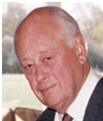|
 |
|
 |
Charles Handy (1932- )
Irish oil executive who became a London Business School professor and renowned business philosopher (pictured right).
Key books
Understanding Organizations (1976) A manager is likened to a doctor (General Practitioner) who must:
Managers face four dilemmas:
1. The dilemma of the cultures A manager’s situation must dictate:
2. The dilemma of time-horizons Balancing future requirements with present demands.
3. The trust-control dilemma Increasing control decreases trust.
4. The commando leader’s dilemma Such leaders like freedom to achieve their objectives, but this contradicts an organization’s need for order and control.
Key quotes on management (from the 4th edition,1993) Diagnosis lies at the heart of effective management. Almost any manager has an array of roles to choose from. That can result in a feeling of role overload and stress, or it can be a licence to play all the parts in an ever-changing drama.
Key quote on human resource management Most organizations do not regard their people as assets in anything like the sense that football clubs do.
The Gods of Management (1985) (for more detail see The Gods of Management in the Business Books section)
There isn't one best culture (values, attitudes and behaviour) for every employee. Organizations will need different cultures for groups who carry out different tasks and, if a culture fails to satisfy employee needs, motivation will suffer. There are four culture categories (“gods of management”):
1. Club culture (Zeus) Autocratic, patriarchal and informal.
2. Role culture (Apollo) Role-based, hierarchical and bureaucratic.
3. Task culture (Athena) Emphasis on knowledge, teamwork and task completion (ideal for innovation and change).
4. Existential culture (Dionysus) Based upon individual autonomy and creativity that are essential to motivation.
Key quotes on corporate culture Much of the trouble in organizations comes from the attempt to go on doing things as they used to be done, from a reluctance to change the culture when it needs to be changed. To impose your ways on others is bigotry, cultural sin. You can detect an organization’s heart by looking at its language.
Key quote on business success Good organizations, like the best of cities, will be made up of villages, where people can be individuals and yet part of a greater whole.
The Age of Unreason (1989) (for more detail see The Age of Unreason in the Business Books section) Three types of organization will predominate in the future:
1. Shamrock organization A small, highly competent full-time workforce helped by:
2. Federal organization Made up of autonomous units, co-ordinated, advised and directed in areas of common interest (like finance and strategy) by head office.
3. Triple I organization (based upon intelligence, information and ideas).
Three tips for success are:
1. Upside-down thinking Creativity from radically challenging existing knowledge This is vital for today's world of “discontinuous change” (where the future bears no relation to the past).
2. Avoid the boiled frog syndrome If a frog is in cold water that is slowly heated it will be boiled alive! This highlights the dangers of resisting change.
3. Portfolio living Where people divide their time between:
Key quotes on change In an age of unreason there can be no certainty. A time, therefore, for bold imaginings in private life as well as public, for thinking the unlikely and doing the unreasonable (talking about an age of unreason). Changing has to become part of our life.
Key quotes on the past, present and future We are all prisoners of our past.
Key quotes on creativity and learning Thinking the unthinkable is a way of getting the wheel of learning moving. New ways of thinking about familiar things can realize new energies and make all manner of things possible.
Key quotes on management Trust has to be earned, but in order to be earned it has first to be given.
The Empty Raincoat (1994) – The Age of Paradox (in America) (for more detail see The Empty Raincoat in the Business Books section) We are in an age of paradox in which we must learn to live with opposites.
Examples of paradox are:
1. Soul v. success People have material success but no soul, shown by Judith Shea's sculpture, Without Words, of an empty raincoat (without anybody in it) in Minneapolis, USA (pictured right). Prosperity is worthless, if people and society are soulless and respect for humanity is lost. People must give greater importance to family, friends, festivals and fun (the 4 F’s).
2. Time v. money We want money but don’t have enough time to enjoy it
3. Freedom v. control Organizations want creative freedom but impose conformity. Organizations are like “inside-out doughnuts” with their centre filled with essential, full-time employees and the outer space filled with outside contractors and temporary and part-time staff (like the shamrock organization in The Age of Unreason - see above).
Key quotes on success There are some principles worth dying for. There has to be more to life than winning or we should nearly all be losers.
Key quote on change If you keep on going the way you are, you will miss the road to the future.
Key quote on creativity Creativity is born in chaos.
Key quote on organizational objectives The principal purpose of a company is not to make a profit, full stop. It is to make a profit in order to continue to do things or make things, and to do so ever better and more abundantly.
The Hungry Spirit (1997) Your must first help yourself, so that you are better able to help others (proper selfishness). Happiness requires a worthwhile purpose and a lasting legacy.
Key quote on happiness We best satisfy ourselves when we look beyond ourselves. |
|
|
||
|
|
|
||
|
||
| Copyright © wisdomtowin.com All Rights Reserved | ||
|



